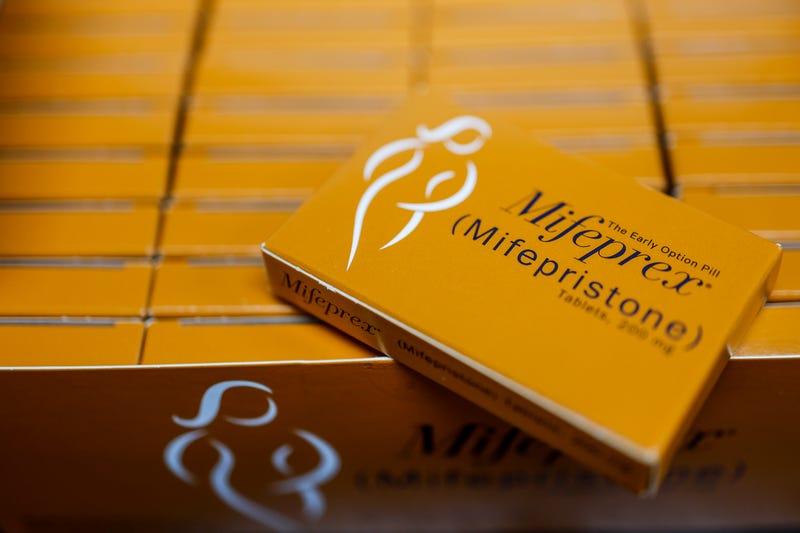
CHICAGO (WBBM NEWSRADIO) — The U.S. Supreme Court has decided to preserve access to the abortion drug mifepristone for now, but that has not yet eased the minds of those fighting for full and permanent access to abortion nationwide.
“Abortion on demand and without apology,” chanted protesters in Chicago’s Federal Plaza Saturday.
A small group, which has regularly fought against legal challenges to abortion access, brought their bullhorn downtown, along with a big banner that read: “Red state, blue state, the war on women is nationwide.”
To them, Illinois’ status as a permanent safe haven for abortion pills and procedures is still not a given after the Supreme Court’s overturning of Roe v. Wade in 2022. Right to Abortion advocate Jay Becker said the stay — pending appeal — that SCOTUS granted Friday is merely a temporary win, if it can be considered a win at all.
“It’s very good news that mifepristone is still available around the country where it’s legal,” Becker said. “There are 23 million women and girls who do not have legal access to that, who do not have legal access to any abortion, and that number is growing.”
Megan Jeyifo, the executive director for the Chicago Abortion Fund, which provides wraparound emotional, financial, and logistical support to people seeking abortion care across the Midwest, struck a similar tone.
“The idea that we’re even celebrating the fact that we still have access to this extremely safe drug is kind of backwards. It’s not something that ever should have been questioned in the first place. It shouldn’t continue to be in question. This is a victory; it’s a small victory, but it never should have been necessary in the first place.”
Jeyifo said the Chicago Abortion Fund has been working on contingency plans to take effect if the Supreme Court upheld the mifepristone ban, and they’ve been communicating those plans to people seeking abortion care across the region.
“I want to be very clear that if the Supreme Court had allowed mifepristone either [to be] banned or restricted heavily, people would still be having medication abortions,” Jeyifo said. “People around the world use mifepristone only to have medication abortions. That would not change.”
Mifepristone is the most commonly prescribed drug in medication abortion, and it has a safety track record spanning two decades, according to medical professionals, the Food and Drug Administration, and advocates for access to abortion.
Becker said Saturday’s protest was really against a bigger strategy currently playing out across the country to fully criminalize access to abortion.
“Just this week, North Carolina is considering a ban on abortion,” Becker said. “Florida passed a six-week ban on abortion … when both of those become law, that will be a complete criminalization of abortion across the entire South. It is growing, and these same anti-abortion forces are going after birth control.”
Listen to our new podcast Courier Pigeon
Listen to WBBM Newsradio now on Audacy!


